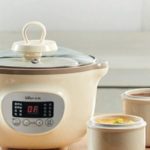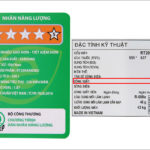Detecting Leaks in a Controlled Environment

It doesn’t take an expert to identify air leaks in your home. However, left unchecked, these can lead to significant energy wastage and impact the efficiency of your cooling and heating systems over time. A simple way to detect these leaks is to turn off all ventilation fans, close all doors and windows, and then use a stick of incense to check for drafts around potential leak points like windows, doors, and even electrical outlets. If the smoke is being pulled in a particular direction or is disturbed, you’ve likely found a leak that needs attention.
Reducing Energy Wastage from Electronic Devices

While electronic devices have specified power consumption ratings, they can still draw a small amount of power when plugged in, even if they are turned off. According to a study by the Lawrence Berkeley National Laboratory in the US, 5% to 10% of a household’s total energy consumption is wasted due to this standby power. To prevent this, unplug devices like TVs, laptops, printers, and gaming consoles when not in use. The same goes for phone chargers. Consider plugging multiple devices into a power strip so you can turn them all off at once with a single switch.
To accurately measure the power consumption of devices when they are turned off, you can use a tool called Kill A Watt. Simply plug the device into this tool and then into a power outlet, and it will display the power consumption with minimal error. It can also estimate your annual electricity costs for that device.
Smart Habits for Using Home Appliances

Using your dishwasher for just a few dishes or running your washing machine with a small load is wasteful. Similarly, turning on the AC for a quick 10-minute cooldown before heading out or frequently opening the fridge door to browse for snacks you know aren’t there can also add up to significant energy wastage.
Most home appliances are designed to operate efficiently when used correctly and with appropriate loads. While it may seem convenient to use these appliances whenever you want, it can lead to unnecessary energy consumption and higher utility bills.
Conduct an Energy Audit

Review your monthly electricity bills to get a comprehensive understanding of your energy usage. This process can help you identify any unusual spikes in energy consumption, whether it’s from excessive AC usage, a faulty water heater, or a malfunctioning refrigerator. While your bill may not provide a detailed breakdown, it can alert you to potential issues with your energy usage and encourage you to be more mindful of your appliance usage to avoid bill shocks.
Lowering Costs Associated with Water Heaters

In addition to avoiding unnecessary use of your water heater, such as turning it on but only using a small amount of hot water or using it when the ambient temperature is already warm, be sure to turn it off when you’re done. Water heaters are among the most energy-intensive appliances in your home, and they will continuously consume energy to keep the water hot even when no one is using it.
Consider replacing your water heater every few years, as older models may have safety issues due to deterioration, and newer models are often more energy-efficient and feature additional safety measures. While the initial investment may seem high, the long-term energy savings will make up for it.
Seriously Consider Solar Energy

Solar energy is becoming an increasingly viable option for households. The cost of solar equipment is decreasing, and installation is becoming more accessible. Vietnam’s geographical location provides an advantage in terms of sunlight exposure, making it a great opportunity to utilize this clean and renewable energy source.
Solar water heaters are a perfect example of how solar energy can be used in your home. Additionally, you can explore installing solar panels to generate electricity for lighting, cooking, and other daily needs.
Mai Anh
6 Tips to Consider Before Buying a Ceiling Fan
Are you looking to purchase a ceiling fan for your big space? Learn more about what factors to consider before making the decision with this helpful guide. From enhancing the atmosphere of your room to providing ventilation and circulation, there are plenty of benefits to choosing ceiling fans. Read on to find out more and make an informed decision.
Increases in Energy Efficiency Achieved with Slow Cookers
As the demand for convenient cooking continues to rise, more and more families, especially those with young children, are turning to slow cookers as a way to create healthy and tasty meals with minimal effort. With so many settings and benefits, slow cookers offer a great solution for busy households.





































